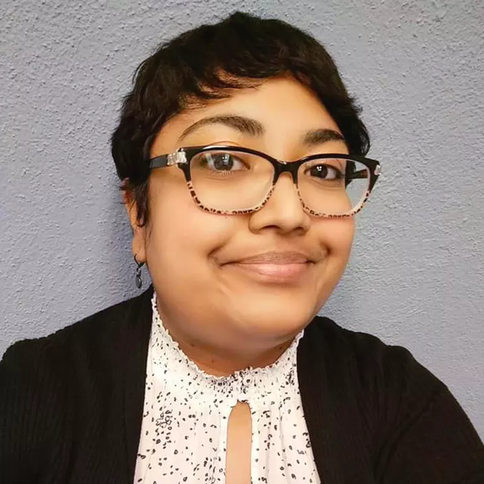
The path to building a career isn’t always straight-and-narrow. For many writers, life experience inspires their passion to pursue journalism. Such is the case for health journalist Krystal Kavita Jagoo, who began her professional life as a social worker in 2010. However, by 2016, her experience would include clinical, teaching, and writing work. Then, she took legal action against an employer for white supremacist workplace harassment and, as she explained, it hijacked her hard-earned social work career. This experience encouraged her to turn to freelance writing work and, as more publications have made greater efforts to commission BIPOC, disabled, and otherwise marginalized freelance writers, she has managed to publish more than 60 articles in less than a year.
Here, Krystal took time to talk about her writing, routine, and what stands out in pitch:
This interview has been edited for length and clarity.
Walk us through your daily routine.
Krystal Kavita Jagoo: On a daily basis, freelance writing tends to be restricted to evenings and weekends when feeling well enough to work. While journalism can often come with expectations of a fast pace, that does not align well with the reality of navigating such disabilities as Migraine Disorder, back pain, sleep issues, etc. With that in mind, I try to do as much as I can to find sources as soon as a reported story is confirmed, even if the deadline may not be for a while, as diversity of sources matters a great deal to me.
How do you keep yourself organized?
KKJ: I tend to work on at least 10 stories a month, but that has increased over time. This has required me to keep a calendar of deadlines and a running to-do list with dates that will get re-numbered based on updates to freelance work responsibilities. Payment norms vary from one publication to the next, which often means setting time aside to follow-up on unpaid invoices.
How do you find your sources and products for stories?
KKJ: Journalists have a responsibility to showcase a variety of subjects given how much impact we have on the consciousness of readers. It is why I will often be explicit about an interest in narratives from folx who have been poorly represented in media, such as those who are BIPOC, LGBTQIA+, disabled, undocumented, Muslim, etc. when seeking subjects. As a member of numerous such groups, I understand the importance of finding an expert from a specific community that is being discussed, especially given healthcare disparities.
What stands out in a pitch to you?
KKJ: When I am contacted by a publicist, I am often struck by folx who understand the need for intersectional feminism, as it can be extremely rare. For example, are they referencing binary gender or using ableist language in how they describe a situation? While I understand that some of us may be further along in our understandings of oppression, such pitches leave me apprehensive given that I never want to contribute to the problematic social inequities with the stories that I cover.
How do you come up with story ideas?
KKJ: My story ideas tend to stem from the equity issues that keep me up at night. Unfortunately, given how disillusioned I have grown with social work, journalism has offered an opportunity to highlight the realities of oppression given how ignorance tends to fuel bigotry that can often justify harm against marginalized groups not deemed worthy of humanity. Often, my work with students on a daily basis will include horror stories of how oppressively have been treated by the institution, of which, the public may be largely unaware, so that provides fertile ground for a pitch on that equity issue that deserves attention.
What is the hardest part of your job? The best?
KKJ: The hardest part of being a health journalist can be finding the middle ground with editors with a limited understanding of intersectional feminism. The best part of writing has been the positive feedback from readers who may rarely see themselves represented or folx who appreciate my equity lens enough to reach out with opportunities. My freelance work includes workshop facilitation so a recent example was when Doctors Without Borders contacted me to provide workshops to their staff after reading my articles on the impact of white supremacy on the mental health of BIPOC folx.
What advice would you give to a publicist to catch your attention?
KKJ: Please ground your inquiry on the relevant equity issues because I [don't know] how to stop being a social worker committed to anti-oppressive practice. While I can think of better and worse examples of my journalistic work in terms of equity, that will always be a consideration. Ideally, I would love all my work to be centered in solidarity with marginalized groups, yet the most oppressed of us know all too well there is no ethical consumption under capitalism.








